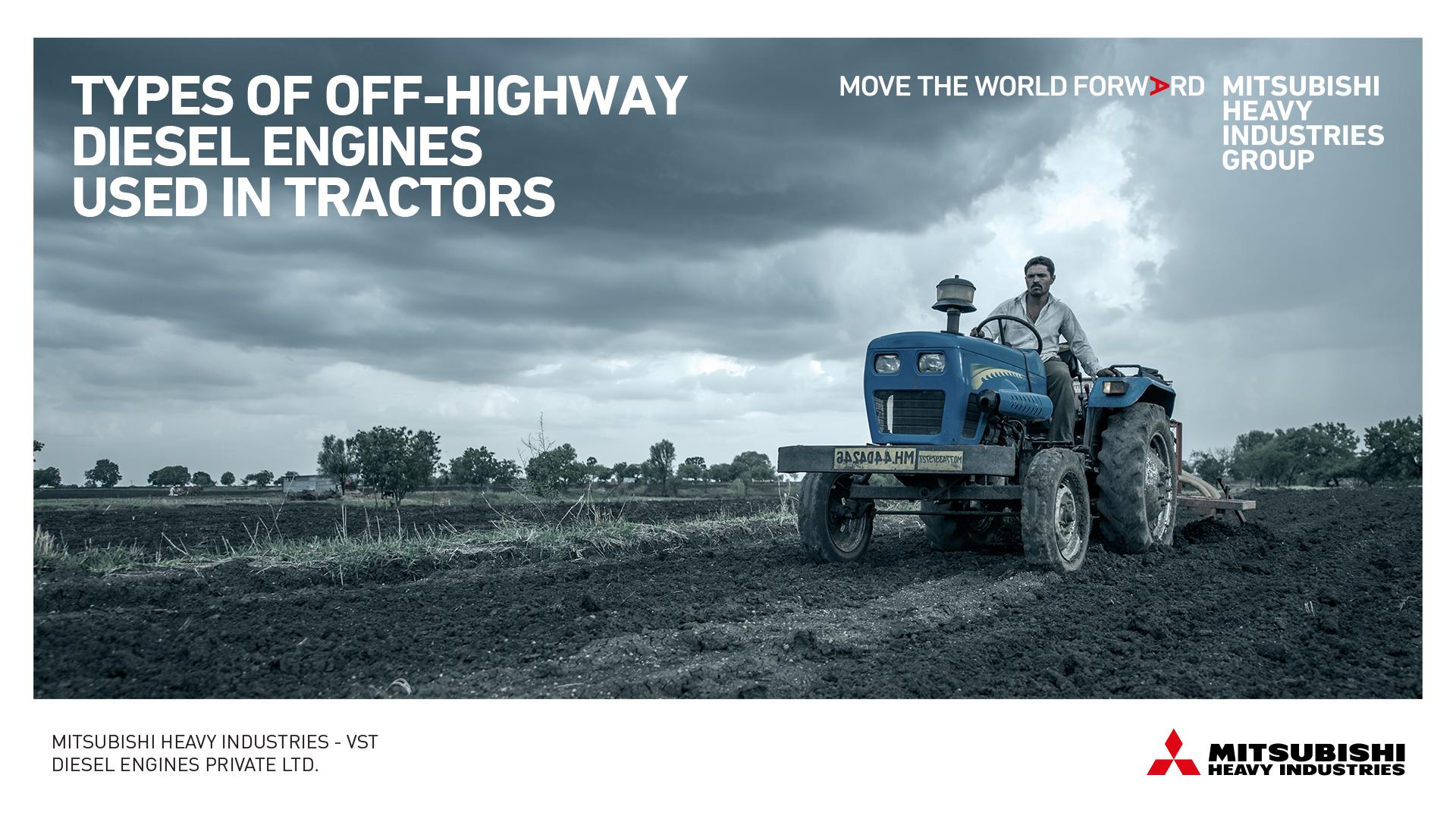Types of off-highway Diesel Engines used in Tractors

Tractors are vehicles that are designed to perform a wide variety of tasks in agriculture, construction, and other industries.
Off-highway diesel engines are commonly used in tractors due to their durability, reliability, and high torque output.
In this blog, we will explore the different types of off-highway diesel engines used in tractors.
Two-Stroke Diesel Engines:
Two-stroke diesel engines are commonly used in small tractors because of their simplicity, low cost, and fuel efficiency.
These engines have a power range of 10 to 60 horsepower, and they are used in applications such as lawnmowers, utility vehicles, and small tractors.
However, two-stroke diesel engines have lower power-to-weight ratios compared to four-stroke engines, and they emit more pollutants.
Four-Stroke Diesel Engines:
Four-stroke diesel engines are the most commonly used type of engine in tractors because of their high power output, durability, and fuel efficiency.
These engines have a power range of 25 to 600 horsepower, and they are used in applications such as heavy-duty tractors, construction equipment, and agricultural machinery.
Four-stroke diesel engines are more efficient and produce less pollution compared to two-stroke engines.
Turbocharged Diesel Engines:
Turbocharged diesel engines are commonly used in high-performance tractors because they provide a high power output and low fuel consumption.
These engines use a turbocharger to increase the airflow into the engine, which increases the engine’s power output.
Turbocharged diesel engines have a power range of 75 to 600 horsepower, and they are used in applications such as heavy-duty tractors, construction equipment, and agricultural machinery.
Intercooled Diesel Engines:
Intercooled diesel engines are used in tractors that require high power output and fuel efficiency.
These engines use an intercooler to cool the compressed air before it enters the engine, which increases the engine’s power output and fuel efficiency.
Intercooled diesel engines have a power range of 100 to 600 horsepower, and they are used in applications such as heavy-duty tractors, construction equipment, and agricultural machinery.
Common Rail Diesel Engines:
Common rail diesel engines are used in tractors that require high fuel efficiency, low emissions, and high power output.
These engines use a high-pressure fuel injection system to inject fuel into the engine’s cylinders, which increases the engine’s fuel efficiency and reduces emissions.
Common rail diesel engines have a power range of 100 to 600 horsepower, and they are used in applications such as heavy-duty tractors, construction equipment, and agricultural machinery.
As evident, farm tractors use a wide range of off-highway diesel engines depending on the power and application requirements.
Why are diesel engines preferred for tractors over petrol engines?
Diesel engines have been the preferred choice for tractors for many years and for good reason.
They offer several advantages over gasoline engines, including:
● Fuel efficiency: Diesel engines are known for their high fuel efficiency, which means that tractors using diesel engines can cover more ground with less fuel.
This translates into cost savings for farmers and other users who depend on tractors to get their work done.
● High torque output: Diesel engines produce high levels of torque at low engine speeds, making them ideal for heavy-duty tasks such as ploughing fields or pulling large loads.
This high torque output also helps tractors to climb steep hills and traverse rough terrain with ease.
● Durability: Diesel engines are built to withstand heavy use and have longer lifespans than gasoline engines.
Throughout their lifetimes, diesel engines can be expected to last longer and require fewer repairs than engines powered by other engines.
● Low maintenance: Diesel engines require less maintenance than gasoline engines, thanks to their simpler design and lack of spark plugs.
Therefore, farmers and other users can spend more time working instead of performing maintenance.
● Availability of fuel: Diesel fuel is widely available, and it can be stored for long periods without going bad.
In this way, farmers and other users will be able to stock up on fuel during low-demand periods and use it when it’s needed.
● Safety: Diesel engines are less flammable than gasoline engines, which makes them safer to use in agricultural and industrial settings.
Diesel fuel also has a higher flash point than gasoline, which means that it is less likely to ignite in the event of a leak or spill.
● Versatility: Diesel engines can be used in a wide variety of applications, from small tractors used for gardening to large industrial tractors used in mining and construction.
Their versatility makes them a popular choice for farmers, contractors, and other users who need reliable, powerful equipment to get their work done.
As you can see, using diesel engines for tractors has many advantages, such as better fuel economy, high torque output, durability, low maintenance, availability of fuel, safety, and versatility.
As a result of these benefits, diesel engines enjoy a relatively high preference amongst majority of the tractor users.
How can MVDE’s diesel engines improve your Tractor’s performance?
MVDE’s diesel engines are designed to provide more power and torque, which can increase your tractor’s efficiency and effectiveness.
We build our diesel engines to last. They are designed to withstand the rigours of heavy-duty use, which makes them a reliable option for tractor owners.
If properly maintained, you can expect to get many years of service from MVDE’s diesel engines.
With a range of 13 horsepower to 50 horsepower, MVDE diesel engines are lightweight and compact, making them easy to mount and manoeuvre.
So, If you are looking for improved performance, high torque, durability, and low noise, then MVDE’s diesel engines might turn out to be a good choice for your tractor.
For more information, contact MVDE’s team of experts or visit our website.




